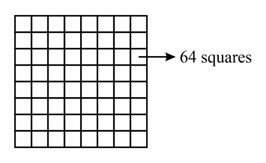MEDIUM
JEE Main
IMPORTANT
Earn 100
When a certain biased die is rolled, a particular face occurs with probability and its opposite face occurs with probability All other faces occur with probability
Note that opposite faces sum to in any die. If and the probability of obtaining total sum when such a die is rolled twice, is then the value of is
(a)
(b)
(c)
(d)
50% studentsanswered this correctly

Important Questions on Probability
MEDIUM
JEE Main
IMPORTANT
Each of the persons and independently tosses three fair coins. The probability that both of them get the same number of heads is:
EASY
JEE Main
IMPORTANT
An electric instrument consists of two units. Each unit must function independently for the instrument to operate. The probability that the first unit functions is and that of the second unit is The instrument is switched on and it fails to operate. If the probability that only the first unit failed and second unit is functioning is then is equal to
MEDIUM
JEE Main
IMPORTANT
Let Then the probability that a randomly chosen onto function from to satisfies is :
HARD
JEE Main
IMPORTANT
Two squares are chosen at random on a chessboard (see figure). The probability that they have a side in common is :

MEDIUM
JEE Main
IMPORTANT
Let be a random variable with distribution.
If the mean of is and variance of is then is equal to :
HARD
JEE Main
IMPORTANT
Words with or without meaning are to be formed using all the letters of the word . The probability that the letter appears at the fourth position in any such word is:
HARD
JEE Main
IMPORTANT
The probability of selecting integers such that , for all , is:
HARD
JEE Main
IMPORTANT
Let and be three events such that the probability that exactly one of and occurs is the probability that exactly one of and occurs is the probability that exactly one of and occurs is and the probability of all and occur simultaneously is where Then the probability that at least one of and occur is:
